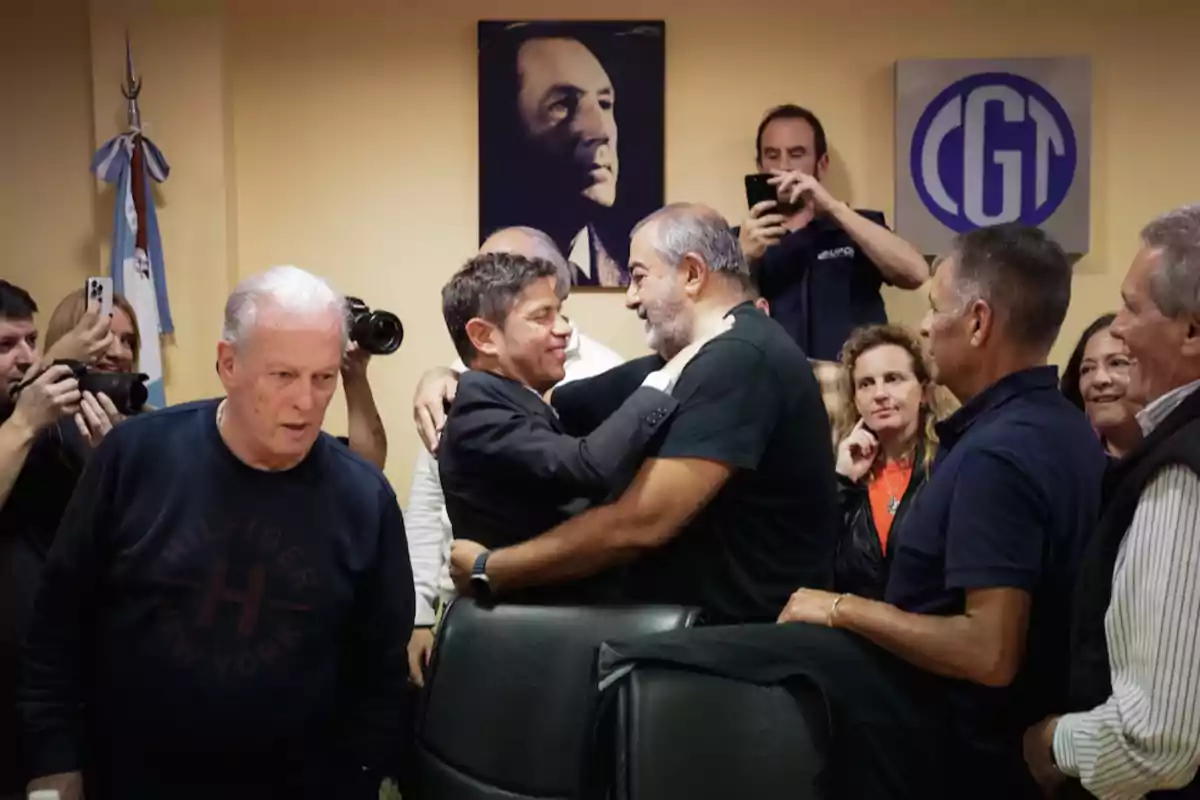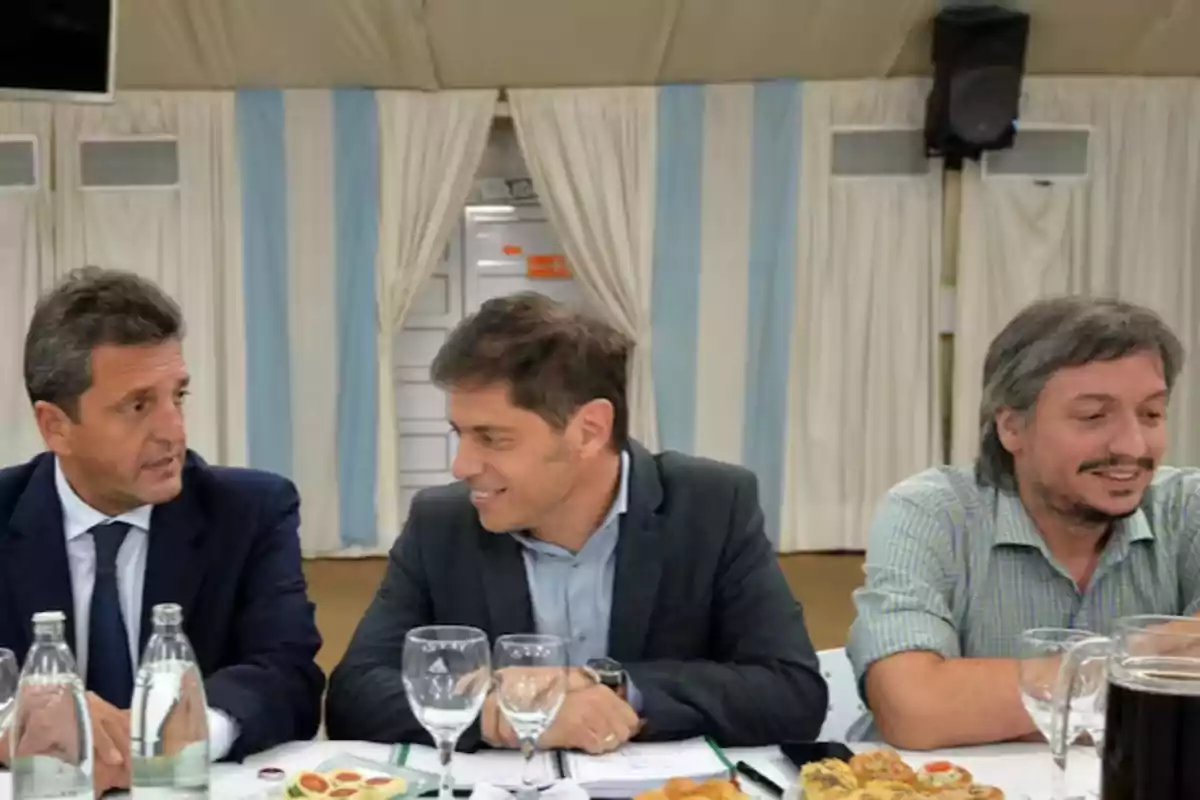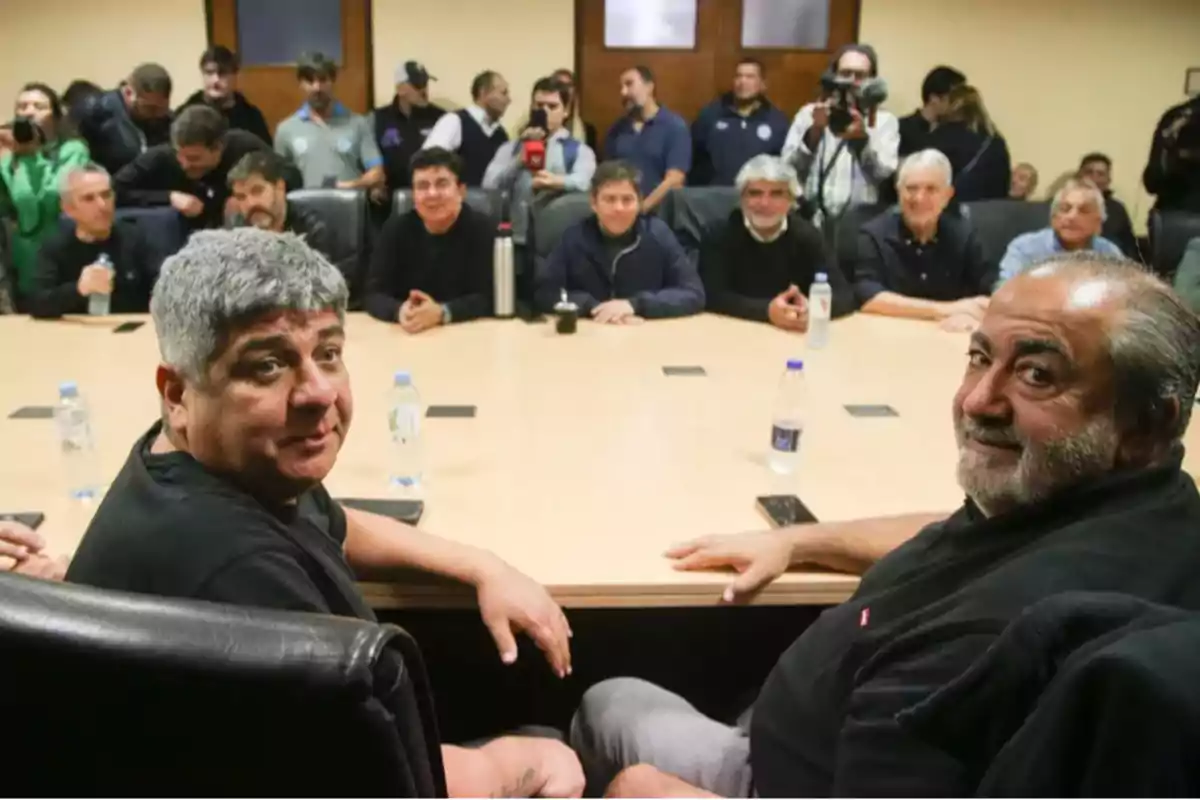
The CGT met with Kicillof to support him and negotiate spots on the lists
Union leaders Héctor Daer and Andrés Rodríguez visited the Buenos Aires governor to formalize their support
In a new attempt to regain the political influence that unionism has lost in recent decades, two leading figures from the General Confederation of Labor (CGT)met with Buenos Aires governorAxel Kicillof in La Plata. The meeting aimed to formalize the labor union's support for the governor's political project and, in practice, to demand spots on the candidate lists for the upcoming provincial elections on September 7.

The leaders Héctor Daer (Sanidad) and Andrés Rodríguez (UPCN), members of the CGT's inner circle, led the meeting with Kicillof just hours before the agreement that gave rise to the Fuerza Patria alliance was finalized, the coalition that will bring together the various groups supporting Kirchnerism under a single ballot in Buenos Aires province.
With unionism increasingly detached from workersand more entrenched in party politics, the labor movement is trying to regain institutional spaces it has progressively lost since 1973. According to recent data, since December 2023, union leaders have had the lowest parliamentary representation in the past 50 years.
Andrés Rodríguez himself was explicit in justifying the support: "CGT has already taken sides. The vast majority of its leaders have given our support to Axel Kicillof's government because it is an important factor and because Peronism governs, and it is important for that government to be reaffirmed", he stated.
Far from hiding the political motivations of the union movement, Rodríguez added: "Peronism needs a reorganization, a self-criticism of what happened in recent governments, a reunion of leaders, and it needs to deepen a project".
The meeting with the governor was formally requested by CGT's executive committee, with the presence of Hugo Moyano (Camioneros), at the beginning of July. The labor union seeks to secure spots on both provincial and national lists ahead of the October 26 elections.

Within the Justicialist Party, CGT aligned itself with Kicillof against the faction led by Cristina Fernández de Kirchner and La Cámpora, although the agreements are still fragile and negotiations are ongoing.
The union movement seeks to position itself strategically within the ruling coalition. According to reports, Héctor Daer could be nominated as a national deputy, with the governor's support. Meanwhile, Cristina Kirchner would promote Sergio Palazzo (Bank Workers) and Vanesa Siley (Judiciary Workers), both aligned with her faction, to renew their seats in Congress.
The September 7 elections in Buenos Aires province will be key for the distribution of positions: 23 main Buenos Aires senators and 46 provincial deputies will be elected, as well as councilors and school board members in the eight electoral districts. CGT's expectation is to get as many names as possible on the lists.
The union advance onthe ruling party's lists reflects a model of political representation based on the preservation of privileges rather than the legitimacy of true renewal. Far from promoting labor reforms or union modernization, CGT seems more interested in maintaining its apparatus than in defending workers.
More posts: